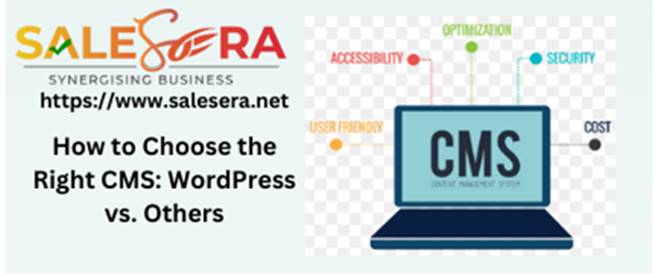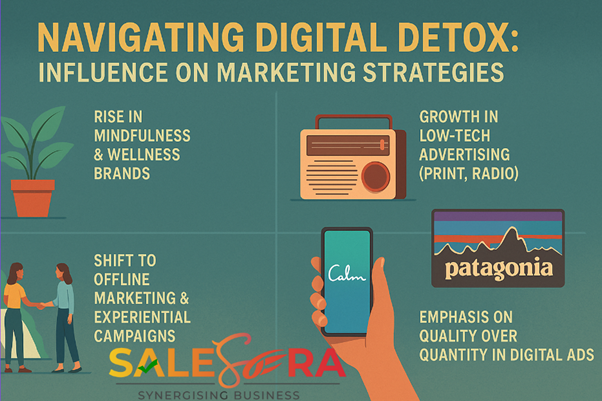In the dynamic healthcare landscape, where innovation is paramount and sustained patient engagement is crucial, the role of patient engagement stands as a transformative force shaping the future of healthcare marketing. From predictive analytics to personalized communication strategies, the journey towards revolutionizing patient engagement is underway, promising enhanced outcomes, personalized experiences, and sustainable healthcare systems.
Revolutionizing Patient Engagement
A Paradigm Shift Patient engagement represents a paradigm shift, transforming patients from passive recipients of care into active partners in their healthcare journey. This means patients collaborate with doctors and nurses to make informed decisions about their health. In terms of healthcare marketing, this shift is significant. It’s no longer just about promoting services; it’s about building relationships and involving patients in their care. This might involve providing helpful information online, using social media to connect with patients, or sending newsletters with health tips. The goal is to ensure patients feel empowered and included in their healthcare decisions.
Leveraging Predictive Analytics for Healthcare Market Trends
The fusion of artificial intelligence and predictive analytics empowers healthcare companies to decipher market trends and consumer behavior with unparalleled accuracy. By harnessing the power of data, healthcare marketers can adapt their strategies to meet patient preferences, maximizing the efficacy of their marketing efforts.
Personalized Healthcare Marketing Campaigns
One-size-fits-all marketing approaches are becoming obsolete. With AI-driven segmentation, healthcare marketers can craft personalized campaigns that resonate with individuals on a profound level. Whether through personalized emails, targeted advertising, or tailored content, personalized marketing campaigns enhance engagement and elevate the patient experience.
Fraud Prevention in Healthcare Marketing
In an era where data security is the principal, AI algorithms serve as attentive gatekeepers, detecting records and patterns indicative of fraudulent activities. By safeguarding patient data and financial transactions, healthcare marketers uphold trust and honesty within the healthcare ecosystem.
Predicting Office Viability and Locations
AI’s prowess extends beyond consumer insights, delving into predictive analytics combined with local demographic data to assess the capability of new healthcare offices or locations. This strategic foresight ensures optimal resource allocation and enhanced accessibility for patients.
Clinical Trial Participant Recruitment
The quest for medical breakthroughs relies heavily on the recruitment of suitable clinical trial participants. AI-driven predictive models enable targeted marketing campaigns, streamlining recruitment efforts and accelerating the pace of medical research.
Now, as we investigate deeper into the realm of healthcare marketing, let’s explore how digital engagement is revolutionizing patient interaction
Digital Engagement in Healthcare Marketing
Digital engagement in healthcare marketing encompasses the utilization of various online strategies and technologies to establish connections with patients, disseminate medical information, and highlight healthcare services. Through platforms like websites, social media, and mobile applications, healthcare providers can engage with patients on multiple levels, offering educational resources, facilitating communication, and promoting health-related initiatives. By harnessing the power of digital tools such as email campaigns, search engine optimization (SEO), and targeted advertising, healthcare organizations can effectively reach their target audience, increase awareness about available services, and ultimately improve patient outcomes.
Definition and Scope of Digital Engagement
At the heart of patient engagement lies digital engagement—a multilayered approach using various digital channels to establish meaningful connections with patients. From websites to social media, digital engagement prioritizes customer-centricity, loyalty, and revenue generation.
Importance of Digital Customer Engagement
Engaging patients digitally not only fosters stronger connections and loyalty but also creates personalized experiences. By prioritizing customers and providing valuable content on user-friendly platforms, businesses can develop enduring relationships and reliable revenue streams. Patient engagement is crucial in ensuring positive healthcare experiences. Dentists and medical spas utilize SEO strategies to enhance their online visibility and stay competitive in their respective markets. Establishing a robust online presence is pivotal for attracting patients with just a simple click. Furthermore, hospitals leverage social media platforms effectively not only to showcase their excellence but also to engage with patients on a more personal level, building trust and rapport.
Driving Forces Behind Digital Engagement
Digital engagement relies on key principles such as customer-centricity, value delivery, user-friendly experiences, and community-building to drive meaningful interactions and connections. By embracing these principles, businesses create immersive online experiences that resonate with their audience and foster deeper engagement. Patient engagement underscores the significance of involving individuals in their healthcare journey to improve health outcomes and enhance overall healthcare experiences.
Dental clinics recognize the necessity of implementing SEO strategies to establish a strong online presence, ensuring visibility amidst online competition. Similarly, medical spas acknowledge the competitive nature of their industry and prioritize advanced SEO techniques to maintain a competitive edge. In the realm of healthcare marketing, the advent of mobile technology and internet accessibility has transformed the landscape, with platforms like Google Ads playing a pivotal role in reaching and engaging potential patients effectively.
Role of Digital Engagement in Patient Engagement
In the realm of healthcare, patient engagement exceeds mere marketing strategies—it embodies a collaborative approach to healthcare delivery, empowering patients to actively participate in their care journey.
In healthcare, patient engagement goes beyond just marketing tactics; it represents a collaborative approach to delivering care, where patients are empowered to actively participate in their health journey. By involving patients in decision-making and treatment plans, healthcare providers create a more personalized and effective care experience.
Having examined the pivotal role of digital strategies, let’s now shift our focus to the core of patient-centric care: patient engagement within the healthcare landscape.
Patient Engagement in Healthcare
Patient engagement in healthcare is defined as the active participation of patients in their own care, treatment decisions, and health management processes. It involves empowering patients to take an active role in managing their health and well-being by providing them with information, resources, and support to make informed decisions and participate in their care journey effectively.
The Current Scenario
Patient engagement fosters trust, strengthens patient-provider relationships, and enhances patient satisfaction by ensuring active participation and collaboration in healthcare decisions. Patient engagement is a critical strategy in healthcare. It involves actively involving patients in their own care decisions, promoting shared decision-making, and improving health outcomes. With trends like personalized medicine, telehealth, and wearable technology, patient engagement continues to evolve. Challenges, such as an ageing population and chronic diseases, are being addressed through patient-centric approaches and universal coverage efforts in various countries.
Why Patient Engagement Matters
Patient engagement plays a vital role in modern healthcare, especially in the realms of healthcare marketing and advertising. When patients are actively involved in their care decisions, it not only enhances their treatment outcomes but also fosters personalized communication and boosts patient satisfaction levels. Through effective healthcare marketing and advertising strategies that emphasize the importance of patient engagement, healthcare providers can empower individuals to participate in their treatment plans. This involvement not only promotes shared decision-making but also leads to improved safety, better quality of care, and overall enhanced patient experiences.
The Future Trends
The future of patient engagement is marked by innovation, empowerment, and value-based strategies, such as personalized medicine, e-medicine, and wearable tech. Patient engagement is evolving with several key trends. First, empowering patients with accurate health information enables informed decisions. Second, active patient participation in care options improves outcomes. Third, digital interfaces enhance patient-physician communication. Fourth, hybrid care arrangements blend in-person and virtual care. Fifth, online reputation management influences patient choices. Lastly, automation contributes to engaging patient experiences. These trends aim to create a patient-centric future in healthcare.
Long-Term Success
Understanding how patients engage with their healthcare can help healthcare systems use their resources better and keep going in the long term. When we look at how patients get involved in their healthcare, we see it can change how healthcare works. Now, let’s think about what we’ve learned and what it means for healthcare marketing in the future. Getting patients engaged is a smart plan for healthcare businesses. When patients are part of their care, it can make them healthier, keep them from needing to come back to the hospital and help them stick to their treatment plans.
Patients who are involved are happier with their care, which means they’re more likely to stick with the same healthcare provider and tell others good things about them. Also, when healthcare providers communicate well and give personalized care, it helps their business grow. Using digital tools and teaching programs can also help patients take charge of their health, which is especially important for managing long-term health problems. In the end, patient engagement isn’t just good for patients; it also helps healthcare businesses grow and build a good reputation.
As healthcare continues to evolve, patient engagement emerges as a foundation of innovation and progress. By embracing predictive analytics, personalized communication, and digital engagement, healthcare marketers can lead a transformative era of patient-centric care, driving better outcomes, enhanced experiences, and sustainable healthcare systems for generations to come.
Take action now to revolutionize healthcare! Start by leveraging personalized communication and digital tools to connect with patients meaningfully. By understanding their needs and using technology wisely, we can make healthcare truly patient-centric. Join SalesEra in this journey to improve healthcare for generations to come!
By Divya Mallika Madireddy








2 Responses
Hello There. I found your blog the use of msn. That
is a very well written article. I will be sure to bookmark it and come back to read extra of your useful info.
Thank you for the post. I’ll definitely return. https://fortune-glassi.mystrikingly.com/
Alright, so I gave 7win9 a look. Pretty slick site, and the games are decent. Definitely a good option if you’re looking for something to do on a chill night. Give it a go: 7win9